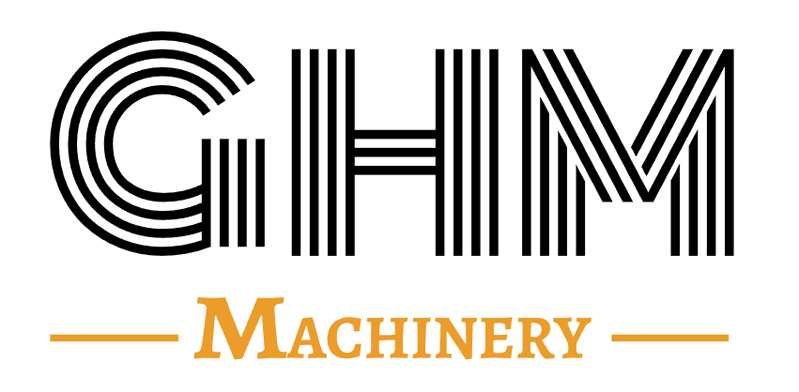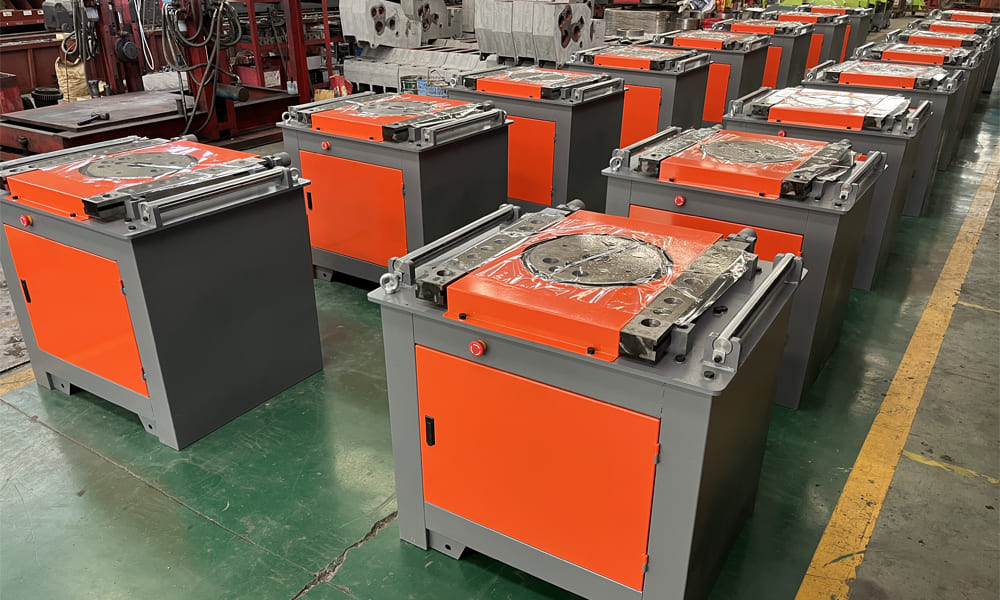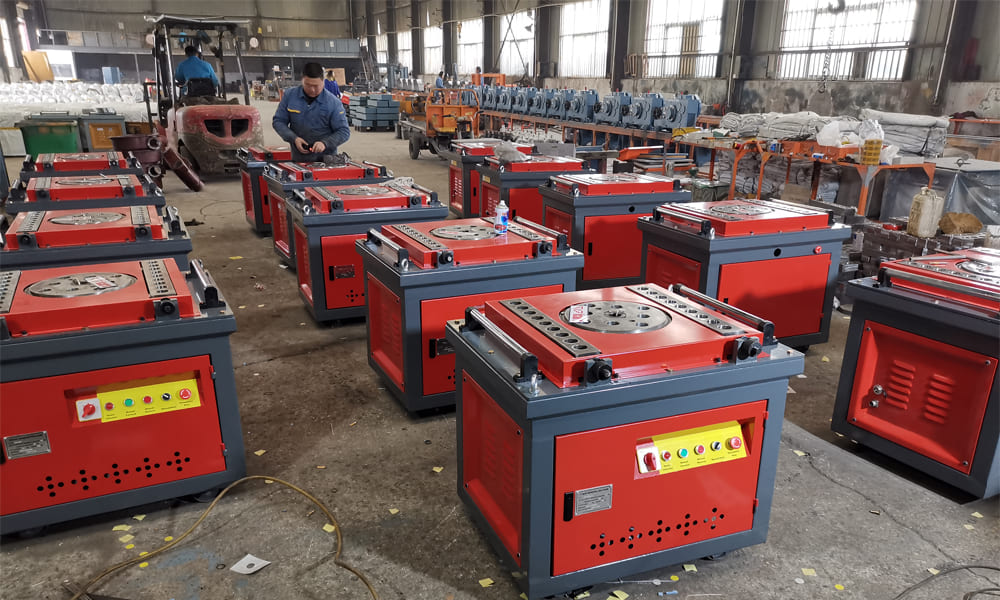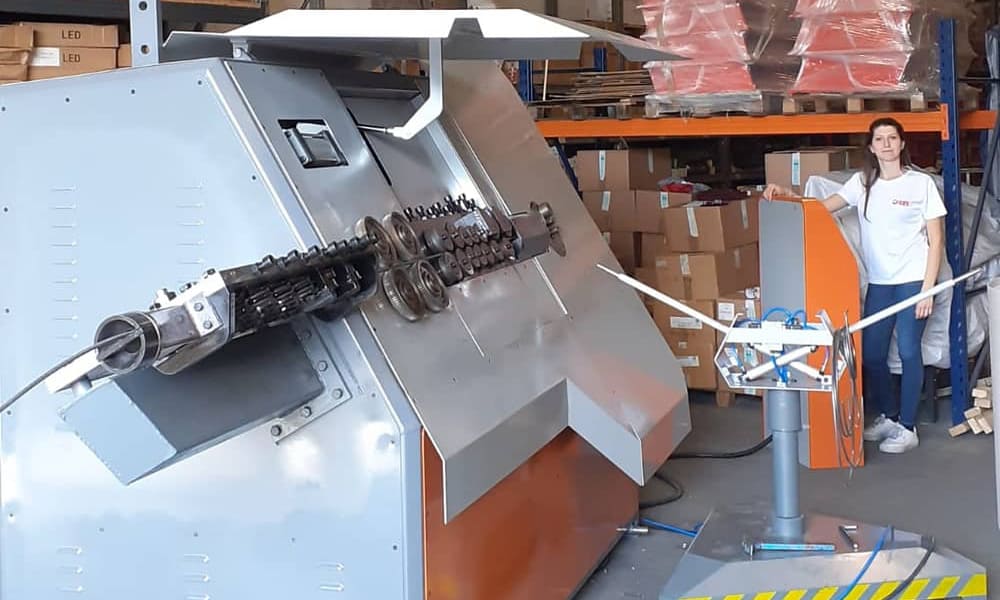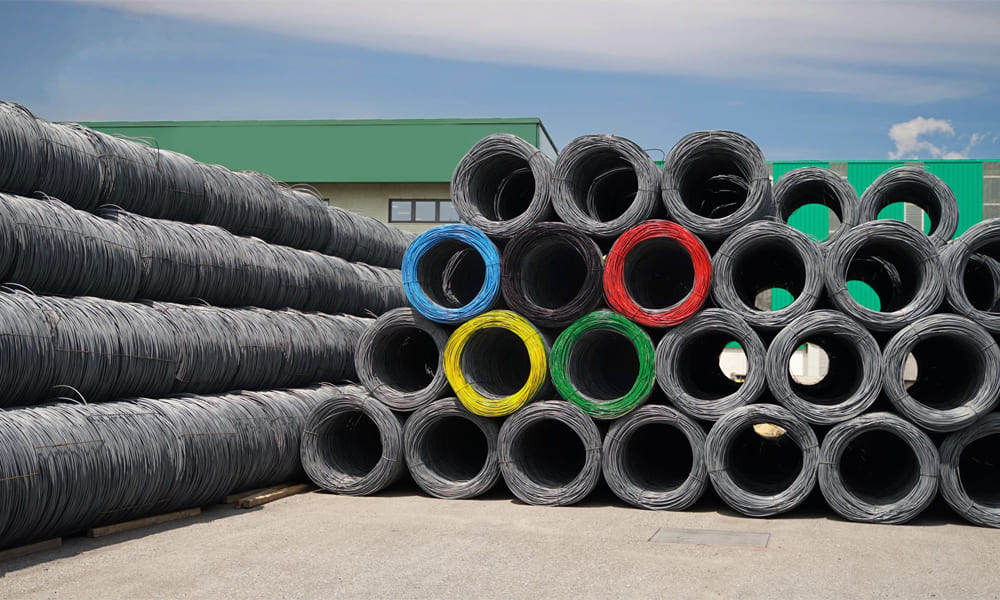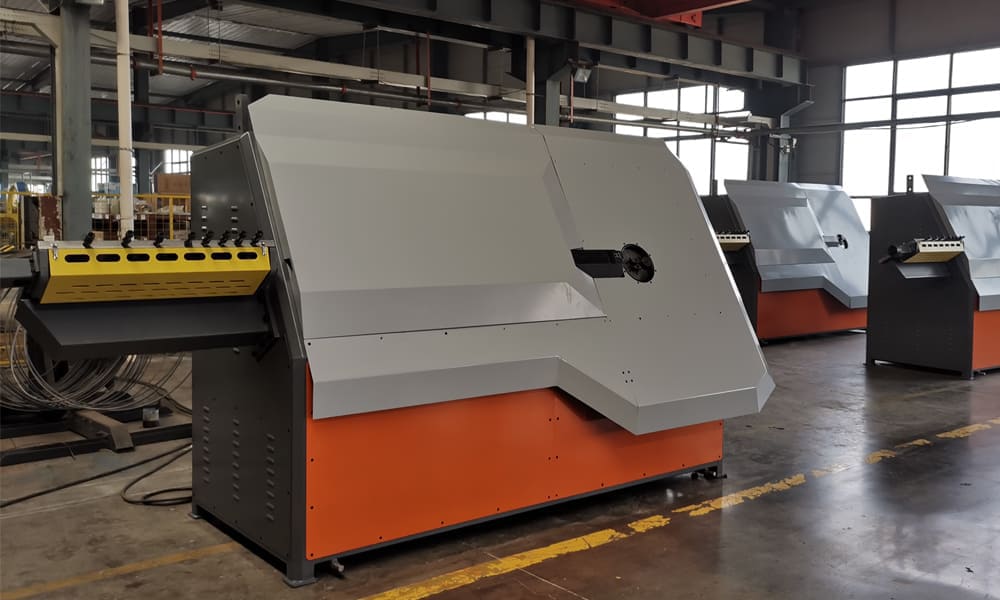Choosing the right steel bar Bender Rebar Machine is a critical step in configuring equipment for a rebar processing plant. The selection should balance performance, efficiency, cost control, and long-term operational needs. This detailed guide outlines key considerations for procurement:
1. Define Your Processing Requirements
-
Steel Bar Specifications: Confirm the typical diameter range of rebar (e.g., 6–40mm). The machine’s rated capacity should cover the largest size with a 20% margin.
-
Bending Shapes: For complex forms (spiral bars, stirrups, multi-angle hooks), select machines that support multi-function molds or CNC-controlled shapes.
-
Production Volume:
-
Small batch: Manual or semi-automatic machines.
-
Large-scale production: Choose full CNC automatic machines (≥500 bends/hour).
-
2. Compare Core Technical Parameters
-
Bending Force: A rough estimate = (bar diameter²) ÷ 4. Example: bending a Φ20mm bar needs ~100kN force.
-
Spindle Speed: High-output machines (≥20 rpm) boost productivity, but must sync with feeding systems.
-
Mold Adaptability: Machines with quick-change mold systems (e.g., hydraulic clamps) reduce downtime.
-
Precision Control:
-
CNC machines: ≤±0.5° bending angle error.
-
Mechanical models: ≤±2°.
-
3. Choose the Right Equipment Type
| Type | Price Range (¥/$) | Capacity | Suitable For | Key Features |
|---|---|---|---|---|
| Manual | ¥5,000–20,000 ($700–2,800) |
≤50 bends/hr |
|
|
| Semi-Auto Hydraulic | ¥30,000–80,000 ($4,200–11,200) |
200–300 bends/hr |
|
|
| CNC Automatic | ¥100,000–300,000 ($14,000–42,000) |
≥800 bends/hr |
|
|
4. Bender Rebar Machine Evaluate Key Brands & Technologies
-
International Brands:
-
MEP (Italy): High accuracy.
-
Pedax (Germany): Long service life (15+ years).
-
-
Top Chinese Brands:
-
GHM Machinery, Jianke Machinery: Affordable, lifespan ~8–10 years, available with CNC systems.
-
Technical Recommendations:
-
Dual servo motor drive: Saves ~30% energy.
-
Automatic lubrication system: Reduces maintenance needs.
5. On-Site Evaluation Checklist
-
Test Run: Bend Φ25mm bar at 90°—quality machines should have <3° springback.
-
Structure: Machine frame plate thickness ≥12mm. Use SKF or NSK spindle bearings.
-
Safety Standards: Look for CE/ISO or GB/T 19001 certification. Emergency stop delay <0.1 sec.
6. Analyze Cost-Effectiveness
-
Energy Use:
-
Hydraulic: 7.5–15 kW.
-
CNC servo models: 40% energy savings.
-
-
Maintenance Costs:
-
Domestic: ~3–5% of purchase price/year.
-
Imported: ~8–10%/year.
-
-
ROI Example: For a plant processing 100,000 tons/year, CNC machine payback time = 1.5–2 years.
7. Consider Value-Added Features
-
Smart Connectivity: Machines with OEE monitoring or remote diagnostics can improve management efficiency by 15%+.
-
Modular Expansion: Ensure interfaces for future add-ons like cutting or straightening modules.
Recommended Procurement Process
-
Define technical & production requirements
-
Shortlist 3–5 qualified suppliers
-
Compare technical specs & performance
-
Conduct factory visit + test machine
-
Negotiate price, delivery, and after-sales terms
-
Confirm acceptance standards (e.g., ≥99% qualified rate on first-piece test)
